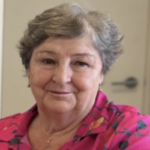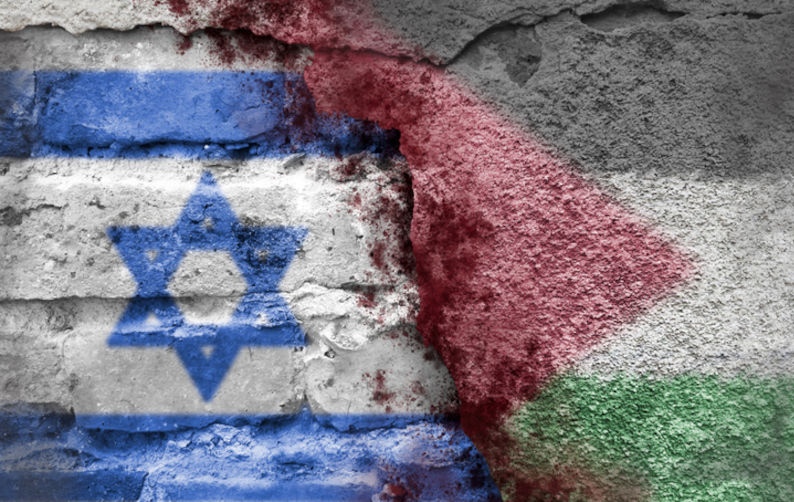This brief temporary ceasefire has given people in Gaza a small reprieve from the ferocious carpet bombing, murdering and destruction unleashed by Israel since Oct 7th. But in spite of the millions and millions of people taking to the streets across the world in protest at Israel’s war crimes, the killing of women and children in horrific numbers, the sinister quiet silencing of dissent both in Israel and across the world has not ceased.
Palestinian Israelis are being arrested and imprisoned for liking a Facebook page in the “most democratic country in the Middle East”, Israel; Australia’s friend. The state of emergency currently imposed in Israel allows it to violate individual rights and suppress freedom of expression. There have been numerous arrests with students and workers inside Israel being subjected to dismissals and legal prosecution. In mid October Israeli police arrested 76 people from East Jerusalem on, “suspicion of committing crimes of incitement on Facebook and supporting terrorist organisations”.
The Palestinian singer Dalal Abu Amneh was arrested because of a comment she posted on Facebook saying, “there is no victor but Allah”, alongside a Palestinian flag. A young man in the village of Kabul in northern Israel was arrested for five days simply for posting a photo of children in Gaza with the words, “my heart is with you”. Another example is that of a Palestinian Israeli teacher in a secondary school in the city of Tiberias who was suspended for liking the Instagram page, “Eye on Palestine”. Jaafar Farah, the director of the Israeli Mossawa Centre (meaning equality) a human rights organisation, said, “since the beginning of the war, almost 150 (Arab) workers have been fired and about 200 students from various universities and educational institutions have been dismissed” for expressing solidarity with Gaza on social media. In yet another sinister form of silencing the heads of Israeli universities wrote to the education minister, Yoav Kisch, in which they said “they play their role in holding accountable the few who express solidarity with terrorist organisations”.
Since Israel has introduced a state of emergency, the response by some of the Jewish Israeli population seems to be have been both one of compliance and eagerness to implement these draconian measures. But the same should not be true for Universities in other Western countries such as Australia. Disappointingly Sydney University issued a similar warning to their staff and students stating, “We will not tolerate pro-terrorist statements or commentary including support for Hamas’s recent terrorist attacks”. Sounds familiar? Staff members were also threatened with disciplinary action up to and including termination.
Silencing takes many forms.
In the USA among the many instances of both Islamophobia and Antisemitism on university campuses, student and teachers have faced dismissal mostly in relation to their support for the human rights of Palestinians. For instance at the University of California, Berkeley, a professor was sacked as editor-in-chief of the scientific journal eLife after he retweeted an article that, he said, “calls out indifference to the lives of Palestinian civilians”.
University life is not the only place where people are being discriminated against for supporting Palestinians. A letter published by Artforum and signed by thousands of artists, scholars and cultural workers, including the art world magazine’s editor, David Velasco, called for an immediate ceasefire, humanitarian aid into Gaza and broader Palestinian liberation. A week later Velasco was fired from the publication he had worked at for 18 years, apparently after complaints from Martin Eisenberg, a major arts patron and Bed Bath & Beyond heir; an example of the power of big money and biased philanthropy. Celebrated US photographer Nan Goldin and other artists have said they will no longer work with Artforum after the magazine’s termination of Velasco. Goldin, who is Jewish, signed the open letter, “I have never lived through a more chilling period. People are being blacklisted. People are losing their jobs.”
Other non-Palestinian literary figures have been targeted, too. Viet Thanh Nguyen, the son of refugees and a sympathiser with other displaced people, had a talk postponed at the 92nd Street Y centre in New York after he signed an open letter demanding an “end to the violence and destruction in Palestine”. The centre describes itself on its website as “a proudly Jewish organisation” and in a statement it said that it wanted to take time to decide how best to use its platform to “support the entire 92NY community”.
The US Campaign for Palestinian Rights, a longstanding conference in Houston, was cancelled following the Orthodox Jewish Chamber of Commerce describing the event as, “a conference for Hamas supporters”. The Hilton cited security concerns as the reason for the cancellation. The keynote speaker, Rashida Tlaib, the first ever elected Palestinian-American congresswoman, had been targeted by a Republican smear campaign, with an attempt to censure her for, “antisemitic activity” and “sympathising with terrorist organisations” – all baseless attacks. Meanwhile, Microsoft National Broadcasting Service (MSNBC) reportedly stopped three of its Muslim broadcasters from presenting their shows, with no explanation. The broadcaster claimed any change in programming as “coincidental”.
In Europe this silencing is also rife. Adania Shibli, the celebrated Palestinian author was awarded Germany’s 2023 LiBeraturpreis prize for her novel Minor Detail, which told the true story of an Israeli soldier’s rape and murder of a Palestinian Bedouin girl in 1949. After the current horrors began, organisers postponed her ceremony stating that this was “due to the war started by Hamas, under which millions of people in Israel and Palestine are suffering”.
In Britain the Liverpool Hope University postponed a talk by Israeli-British historian Avi Shlaim, whose work has challenged Israel’s official historical narrative. The university’s defence was that the decision was made with the wellbeing and safety of students and staff taken into consideration.
Within the British Labour party Andy McDonald expressing his support for a two state solution was suspended for telling an anti-war demonstration, “We won’t rest until we have justice, until all people, Israelis and Palestinians, between the river and the sea can live in peaceful liberty.” and Tory MP Paul Bristow was also sacked from his role as a government aide for asking for a ceasefire.
In Australia we are not immune either. At the beginning of the war in Gaza in early October the deputy mayor of Waverley Council in Sydney was sacked by Councillors at an extraordinary meeting after trying to amend a motion about the Israel-Gaza conflict to call out “war crimes” by Israel. And in early November 200 ABC journalists protested over the ABC’s refusal to use words such as invasion, occupation, genocide, apartheid and ethnic cleansing to describe Israeli government policy and the reliance on the Israel Defence Force’s public statements on the conflict. Muslim and Arab journalists also claimed ABC’s “pro-Israel” coverage had impacted their relationships with communities and their abilities to do their jobs.
However the greatest burden of silencing has been that of Gazan journalists and other media workers. Since Oct 7th and the start of the Gaza War, 57 Palestinian and Lebanese journalists and media workers have been deliberately targeted and killed by the Israeli military. The majority of these were in Gaza but several have also been killed on the Lebanese-Israeli border by Israeli drones. As of November 26, the Committee to Protect Journalists (CPJ) in addition to those killed, confirmed that 11 journalists were reported injured, 3 journalists were missing and19 journalists were reported arrested. And there have also been multiple assaults, threats, cyber attacks, censorship and killing of family members. In Gaza journalists have also had to work with supply shortages and extensive power outages the CPJ reported.
Repression against journalism takes other forms as well. says Reporters Without Borders (RSF). There have been 50 media outlets totally or partially destroyed in Gaza, including 24 radio stations that broadcast over the air or online and which provide the main source of local information to the population of Gaza. The offices of other media grouped in large towers in Gaza City were among the first to be bombed. The bombings also destroyed a temporary tent housing teams from AFP, Reuters, BBC and Al Jazeera in the south of Gaza, but did not injure anyone.
Journalists in Israel are also feeling the pressure. Three BBC journalists were held at gunpoint by an Israeli police officer on their way to their hotel in Tel Aviv. And in Jerusalem, Ahmad Darwasha, a correspondent for Al Araby TV, was threatened and insulted during a live broadcast by an Israeli police officer. As Darwasha tried to finish his broadcast, the police officer stood in front of the camera. “Killers, killers […] Gaza should be turned into dust.”
But it is Gaza journalists who are the real heroes in this horrific war. With hardly any food or water, no electricity to charge their equipment, no internet and under the constant threat of bombing by the Israeli army, local journalists in Gaza are the only voices that are reporting on the conflict from within the enclave.“I have already seen a few wars in Gaza, but I have never cried as much as these days, while working,” said one journalist. “It’s not like anything we’ve experienced before, no one is safe. It’s so unfair… I just want to tell the truth, as a journalist, so that someone stops this now and our families can be saved.”
How does international humanitarian law protect journalists in armed conflict and stop them being silenced? There are specific provisions in international law to protect humanitarian workers and journalists during armed conflict. Under Article 79 of Additional Protocol I of the Geneva Conventions, journalists in war zones must be treated as civilians and protected as such, provided they play no part in the hostilities. Intentionally directing an attack against a civilian or a journalist – whether in an international or in a non-international armed conflict – also amounts to a war crime under the Rome Statute of the International Criminal Court.
The question is will the ICC this time charge Israel with war crimes for the blatant killing and silencing of Gazan journalists and for the horrific numbers of women and children murdered and forever silenced in this 2023 Israeli war on Gaza? Or will the impunity from international law that Israel has enjoyed to date still prevail. We will see.

Helen McCue
Dr Helen McCue AM is a former United Nations consultant, working in the Middle East with refugees and displaced. Dr McCue has been a strong advocate for Palestinian human rights including the rights of Palestinian refugees for over 40 years. She is co-founder of Union Aid Abroad APHEDA and co-founder of Rural Australia for Refugees (RAR). Dr McCue is the 2024 recipient of the Jerusalem Peace Prize.
